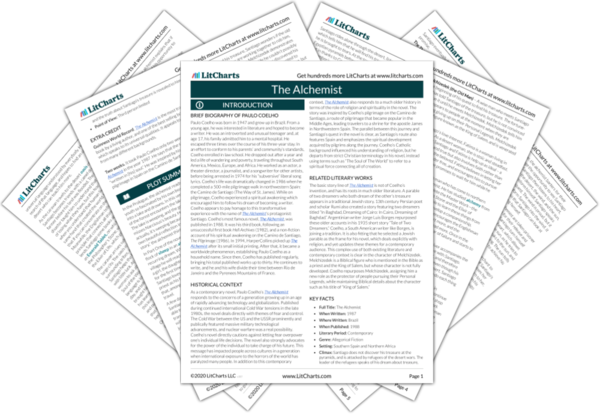Urim and Thummim are fortune-telling stones that Melchizedek gives to Santiago. The stones are black and white, with their colors representing “yes” and “no” answers to questions—so Melchizedek tells Santiago that he must only ask objective questions of the stones. Because of this, Urim and Thummim symbolize certainty and objective knowledge. This type of certainty, however, is ultimately presented as less valuable than the opportunity to learn from the world and to make one’s own choices. Santiago carries the stones with him throughout the novel, but never uses them, having promised to “make his own decisions.” The constant presence of Urim and Thummim thus also represents the human desire to give up control and decision-making ability. The greatest lie in the world, as stated by Melchizedek, is that humans don’t control their fates. Although Melchizedek is the one who offers the stones to Santiago, they also symbolize the very thing that he says Santiago should avoid: trusting in anything other than himself to make a decision.
Urim and Thummim Quotes in The Alchemist
Part One Quotes
He didn’t consider mending the hole—the stones could fall through any time they wanted. He had learned that there were certain things one shouldn't ask about, so as not to flee from one's own destiny. “I promised that I would make my own decisions,” he said to himself.










